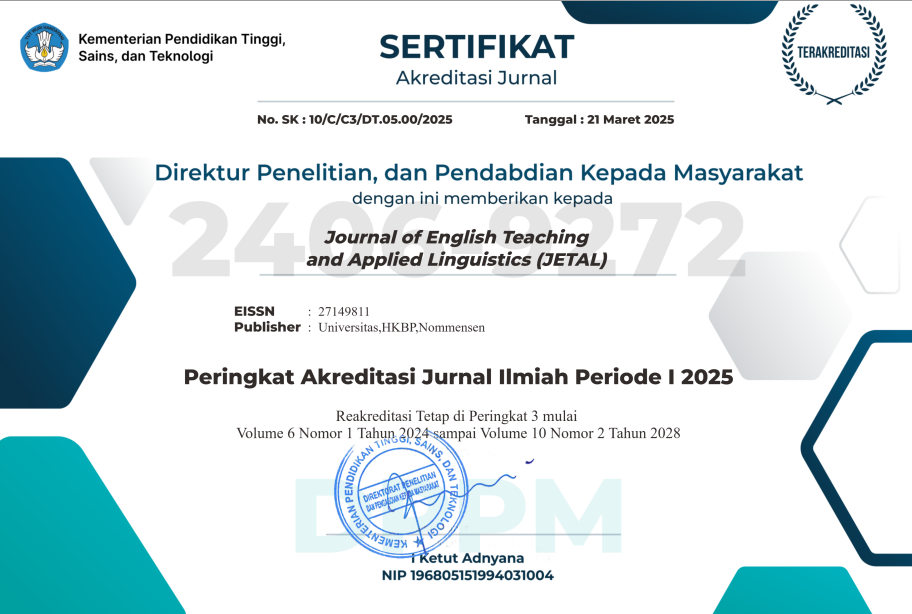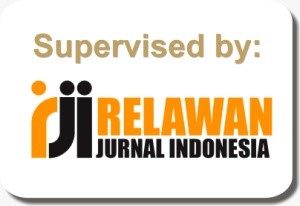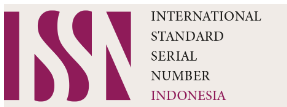A Study on Vocabulary Learning for Young Learners in Gwynfor English Course Jombang in The Academic Year of 2021/2022
Abstract
This research is based on learning vocabulary in A 1 class of Gwynfor English Course Jombang. Most of students complain that the teaching activities are very boring. Moreover, speaking skills require a lot of practice so that students are fluent in English. vocabulary is a core part of language skills and provides much of the basis for how well students speak, listen, read and write. Many students in Indonesia are difficult to understand English lessons properly, their main obstacle is the lack of vocabulary mastery. The problem of this research how are the teachers make learning English easy to understand and how are the processes of learning vocabulary in Gwynfor English Course Jombang. The researcher uses the descriptive qualitative method. In this study the researcher found some ways that used in by the tutor in teaching vocabulary learning in A 1 class are using songs, games and pictures.
References
Irianto, D. (2019). Interest of Sharing and Interest of Accessing Accounting Knowledge Via Youtube. 377(Icaess), 178–182. https://doi.org/10.2991/icaess-19.2019.33
Alqahtani, M. (2015). The Importance Of Vocabulary In Language Learning And How To Be taught. International Journal of Teaching and Education, III(3), 21–34. https://doi.org/10.20472/te.2015.3.3.002
Harahap, M., & Siregar, L. M. (2018). Mengembangkan Sumber dan Media Pembelajaran. Educational, 7(January), 9. https://doi.org/10.13140/RG.2.2.19282.86721
Authors retain copyright and grant the journal right of first publication with the work simultaneously licensed under a Creative Commons Attribution-ShareAlike 4.0 International License (CC BY-SA 4.0) that allows others to share the work with an acknowledgment of the work's authorship and initial publication in this journal.
Authors are able to enter into separate, additional contractual arrangements for the non-exclusive distribution of the journal's published version of the work (e.g., post it to an institutional repository or publish it in a book), with an acknowledgment of its initial publication in this journal.
Authors are permitted and encouraged to post their work online (e.g., in institutional repositories or on their website) prior to and during the submission process, as it can lead to productive exchanges, as well as earlier and greater citation of published work (See The Effect of Open Access).






